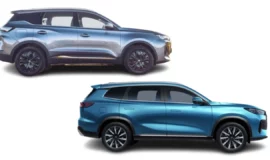
Pakistan and the International Monetary Fund (IMF) have agreed on reducing the country’s average tariffs to 6% over the next five years, significantly reducing the current rate of 10.6%. This strategy aims to benefit the country in many ways, such as increasing foreign competition and making Pakistan’s tariff the lowest in South Asia. Let’s explore how it can impact car prices in Pakistan and what else it can offer to us.
Impact on Local Car Prices in Pakistan
The government of Pakistan is expected to reduce the tariff from July 2025. As a result, the prices of cars are expected to decrease. These lower prices and decreased tariffs on cars will make them more affordable and accessible for the people. The goal of this initiative is to achieve a 6% average tariff by 2030.
National Tariff Policy and AIDEP
The implementation of the policy is done under two frameworks:
- The National Tariff Policy aims to reduce the 7.4% average tariff by 2030.
- The Auto Industry Development and Export (AIDEP) aims to reduce tariffs in automobile sectors.
Furthermore, it is important to note that the planned tariff was 7.1% but a 7.4% tariff was set other than the automobile sector.
Reduction in Customs Duties
This policy is further expanded and has introduced the elimination of additional customs duties.
- 80% reduction in regulatory duties
- 7% reduction in customs duties on certain goods
- 2% duty on zero-tariff slabs
The IMF proposed the reduction of the weighted average tariff to 5%, whereas the federal government decided to target 6%.
Improvement in the Automobile Sector
By 2030, all the additional customs and regulatory duties will be removed in the automobile sector. A maximum of 20% of import tariffs will be limited ensuring a competitive market. However, in the first year, the regulatory duties on the vehicle will be reduced to 55 to 90 percent. These changes will eventually lower the car prices making them more affordable.
Car Sales Analysis
Considering the previous car sales of 2024, the number of sales has significantly risen by over 50% as compared to 2023. With this increase in sales, the cars sold in 2023 jumped from 81,654 to 124,802 in 2024. Furthermore, this is a result of fewer price hikes in 2024 in the automobile industry. However, it was concluded that the sales were still lower compared to 2022.
If the tariffs are reduced as mentioned above, there is a high chance that car sales will jump amid decreased prices. Finally, good days are coming for the automobile sector?
Conclusion
To sum this up, Pakistan and the IMF have agreed to change the average tariffs. With this shift in Pakistan’s economic policy, vehicles are going to be more affordable, giving rise to sales. However, the tariff policy is expected to be approved by the government before June 2025, with complete implementation in the budget of 2025-26.
Pakistan and the IMF have agreed to reduce the country’s average tariffs to 6% over the next five years.
The reduced average tariff will impact the prices of vehicles in Pakistan, making them affordable for people.








Leave a Reply